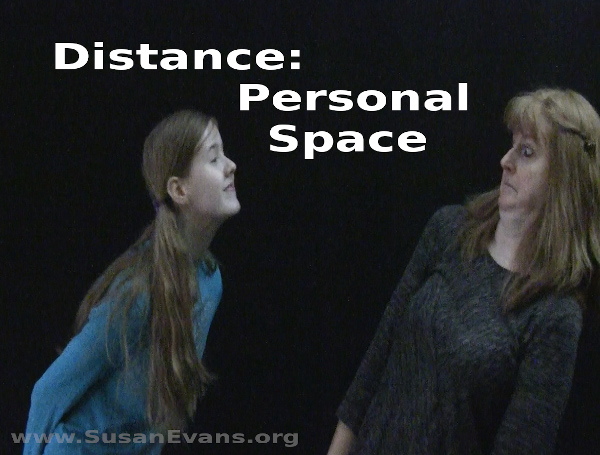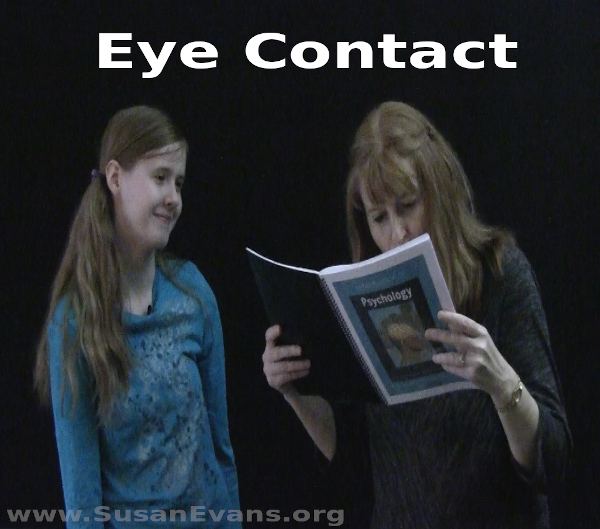Having lived in different cultures (Guatemala, England, and the USA), I have come to realize that nonverbal communication is vital to understand. Sometimes what a person is saying with words is not the same as what they are saying with their body language. I wrote a short poem about nonverbal communication with Guatemalans, since the British and Americans have a more reasonable sense of personal space:
Teen Girl Facing Nonverbal Conflicting Cues
Guatemalan teen boy
standing too close for comfort
diving in for a kiss on the cheek at church
a complete stranger
she holds back a slap
telling herself this is only cultural
or is it?
Yes, this actually happened to me! Not just once, but nearly every week, since I lived in a different culture. Now that I am in the United States, I am surprised at how far away people stand from each other, even when they are married. It seems cold…
Goofy Skits: Nonverbal Communication
Today my daughter and I will show you the basic types of nonverbal communication.
Communication: The World of Expression
by Rachel Evans
Often we forget just how complicated communication is. Simply put, there’s always a balance of expressions and positions in conversation, and when the balance is off, we notice. This is the same even without talking. Mainly, there are three non-verbal cues that balance into a normal chat.
1. Distance: If you have ever been in a conversation and suddenly feel the need to take a step back, the person you were talking to was probably too close while chatting. Perhaps they have a different-sized personal bubble than you.
2. Gesture: You can tell a lot about someone’s mood by the movements they make. The easiest to read are facial expressions. Most facial expressions stay the same around the world, with some cultures being more expressive than others.
Body position is equally important. Leaning forward shows interest, while crossing arms usually shows disinterest in talking or the desire to have an argument.
3. Eye Contact: This is different depending on where you look in the world. Americans find long eye contact awkward and uncomfortable. Native Americans prefer a person to look at the ground while speaking, especially if the person is of a lower rank or status.
Paralanguage is equally important. This consists of variations of speech, like stresses on certain words, loudness, pitch, and rhythm. A sentence can have many different meanings depending on how the speaker says it.
Overall, communication is a complicated thing that most of us have expertise in identifying without even knowing it.
Now that my daughter’s portion is done, I challenged myself to write a poem about nonverbal communication in marriage. Here it is:
A Marriage Healed
A turned back
Shutting me out of your life
No more open heart
Gone away inwardly
When will things change
Get back the sparkle in your eyes
To connect and be together
Unified as one
Heartbreak persists
Arms hanging limp
Drooped shoulders
Trudging through the day
Until healing comes
Breaking forth as the morning rays
Warming not your back, but your face
At last we are one
———————————————————————————————————–
This episode was all about identifying the basic types of nonverbal communication.
To apply what we have learned, describe in the comments: What are some ways that you may have misread nonverbal communication in your interaction with others, especially those of different cultures?
In case you are wondering what curriculum we are using for psychology, we are studying {affiliate link} Introduction to Psychology by 7 Sisters Homeschool. We are learning the basics of psychology while dramatizing what we learn in a fun way.
Coming up next… What is Maslow’s hierarchy of needs, and how can we get these needs met to be fulfilled as human beings? (Sign up for our monthly newsletter below if you don’t want to miss a single episode.)









